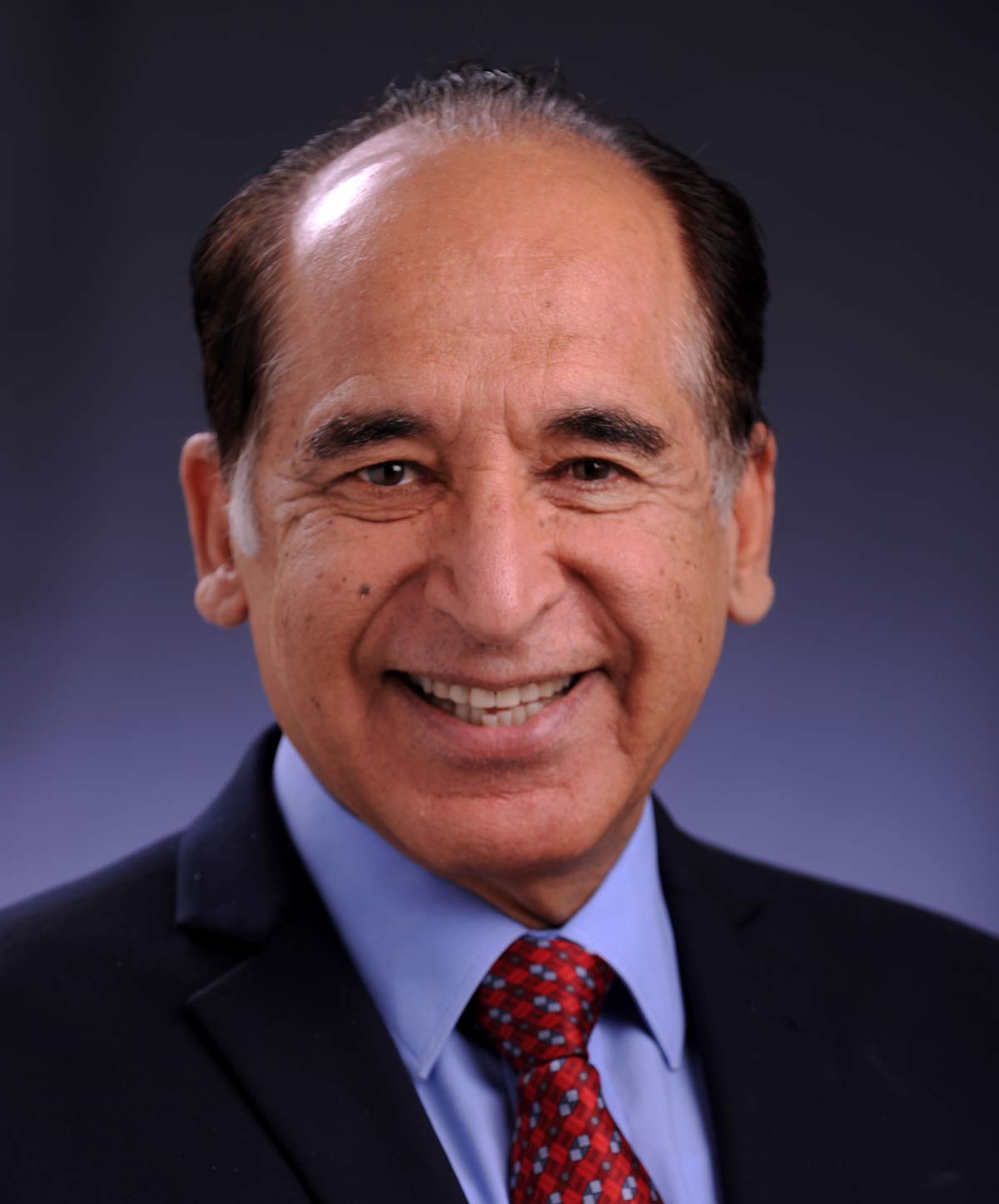
“We think everyone deserves to have knowledge and skills related to population health and lifestyle medicine. We feel all health professionals – a nurse, a physician, an educator, a researcher, a health administrator and so on – will benefit and help improve and promote health.”
Dr. Ravinder Mamtani is Vice Dean for Population Health and Lifestyle Medicine at Weill Cornell Medicine-Qatar (WCM-Q). A passionate advocate for preventive medicine, Dr. Mamtani heads the Institute for Population Health (IPH) at WCM-Q, which has just launched a new certificate program to equip professionals working in the health sector with key skills and knowledge to promote public health and enhance the physical, mental, and social wellbeing of people in the MENA region and beyond.
The new Certificate in Population Health and Wellbeing is a 60-hour multidisciplinary and collaborative course that provides training in the domains of population health, healthcare delivery, health policy, evidence-based approaches to health promotion, disease causation and prevention, communicable and non-communicable diseases, lifestyle medicine, crisis management, pandemics, and digital health. The course is delivered in hybrid form, with both in-person and online elements, and has been designed to be highly interactive, featuring a mixture of lectures, classroom-based workshops, panel discussions, and Q&A sessions. The program is open to all interested healthcare professionals. Dr. Mamtani also holds the positions of Professor of Population Health Sciences and Professor of Medicine (Center for Global Health) at WCM-Q.
What motivated the creation of the new Certificate in Population Health and Wellbeing?
There are many reasons and factors that prompted us to create this new certificate program. Perhaps the most pertinent factor has to do with COVID-19, which was a wakeup call for all of us on this planet. The pandemic showed us that as a global community we were ill-prepared to deal with the pandemic but that there was also a great deal of difficulty in reaching consensus on the best way to address the situation.
And so, the new program will have a strong focus on skills and knowledge that will help healthcare practitioners understand the basics of population health, pandemics, and diseases burden, plus quantitative research skills, healthcare delivery models, evidence-based approaches to care, crisis management, and preventive medicine. The program participants will also be exposed to contemporary topics such as precision health, planetary health, and sustainability.
Looking beyond COVID-19, the data on chronic illness over the past 20 to 25 years show us that we have a serious health crisis in this area. Indeed, this can be understood as a pandemic of chronic illness. We know that people are experiencing premature mortality, they are dying earlier due to heart disease, cancer, and other chronic problems; this is not acceptable. The new certificate aims to provide health enthusiasts – who can contribute to the physical, mental, and social wellbeing of people in the Middle East and beyond – with the foundational knowledge of these issues so that they can serve as ‘health agents’ to promote good health.
Please tell us about the role of lifestyle medicine in the Certificate of Population Health and Wellbeing.
We now know from lots of very good data from high-quality research that many of the chronic illnesses we see relate to unhealthy lifestyles. As such, there is a great potential for reducing premature death by using lifestyle medicine approaches like healthy diet, physical activity, healthy sleep patterns, and so on.
The greatest impetus for us is that we already know these lifestyle medicine approaches are effective. We have ways to help people live longer and to be healthier as they age. So we feel a very strong moral obligation to promote this approach, and view this as a great opportunity to improve health, wellbeing and quality of life for a great many people.
Why does the new certificate address social conditions as a determinant of health?
It has become apparent that there are not just medical or clinical reasons that determine who suffers from various health problems – there are social determinants, too. And so, we felt it would be good to bring in a discussion on social determinants such as inequity, inadequate literacy, and lack of access to basic healthcare.
Why should basic healthcare not be available to everyone regardless of their economic or social status?
I am reminded of US President Franklin Roosevelt’s quote: “The test of our progress is not whether we add more to the abundance of those who have much; it is whether we provide enough for those who have too little.”
What is the role of education in population health and wellbeing?
From our own research at IPH and review of literature, we have noted that public health topics such as lifestyle medicine, environmental health, social determinants of health and health policy do not get addressed in health curricula of medical schools around the world (at WCM-Q, we have included various population health and preventive medicine topics in our own curriculum).
This means that many physicians and other healthcare practitioners treating patients all over the world have not had the benefit of formal instruction and training in various components and subject areas of public/population health. This certificate program aims to address this knowledge gap.
What is to be understood by the terms ‘wellbeing’ and ‘being healthy’, which are used so frequently?
According to the Centers for Disease Control in the US, “well-being is a positive outcome that is meaningful for people and for many sectors of society, because it tells us that people perceive that their lives are going well.” When the World Health Organization came up with their definition of health, they spoke about physical, mental, social, and spiritual health, not just about absence of disease or infirmity. I don’t see how you can separate physical and social health from mental health. So wellbeing is a holistic concept whereby we understand health to have many interacting components rather than compartmentalizing the various elements of health and treating them individually.
What is the economic argument for promoting population health and wellbeing?
This was nicely summarized in a UK journal (The Journal of Epidemiology and Community Health). What they said was very important: that the return on investment for public health interventions is 14; i.e., for every dollar, riyal, pound, or euro you spend, you will get a return of 14 dollars, pounds, et cetera. When you look at something like this how can you not pay attention to public health (i.e., population health) and wellbeing? This is such a striking observation, and we really think it is time to pay attention to this aspect of healthcare costs. Appropriate use of the available resources at the present time will free up funds – in the future – for use in other areas of healthcare and development, leading to better health outcomes overall in any given society.
What are some of the obstacles to population health and lifestyle medicine approaches becoming more widely adopted to address global health challenges?
We live in a culture where we are looking for instant gratification and quick fixes; there is a great emphasis on developing new medicines and treatments that can easily fix health problems without us having to change our lifestyles or think long-term. That is not to denigrate existing conventional therapies or the process of developing new drugs, which clearly play a crucial role in healthcare, but that mindset is so pervasive and dominant that there is a tendency to disregard alternative effective options that take a little longer to deliver the health benefits we wish to see.
Of course, it takes a little longer for a positive lifestyle change to deliver improved health but the long-term results in most cases are superior. Also, it is not necessarily an either/or scenario; it is usually the case that someone suffering from heart disease or type 2 diabetes for example, will benefit from taking a prescribed medication and also making positive lifestyle changes such as improving their diet, quitting smoking and beginning to exercise regularly. Ignoring lifestyle health is not an option.
I think in general, healthcare professionals don’t receive much education or training in public health and lifestyle health. If you don’t cover that in medical curricula, how can we expect healthcare professionals to be up-to-date on public health and lifestyle medicine matters or to advocate for these approaches?
Who can participate in the new certificate program?
All healthcare practitioners or professionals are welcome to join this program. We think everyone deserves to have knowledge and skills related to population health and lifestyle medicine. We feel all health professionals – a nurse, a physician, an educator, a researcher, a health administrator and so on – will benefit and help improve and promote health. We want to broaden this so that it reaches as many professionals as possible. We believe this Certificate in Population Health will do that. And we are ready to take the lead.
What material will be studied in the Certificate Program and how will it be presented?
One of our key objectives is to make the program as interactive as possible. There will be thematic discussions/seminars and we will also allow participants to ask questions and share their experiences. It is great for experts to share their knowledge but it is also important for participants – who may have a great deal of extremely relevant experience from the frontline of healthcare delivery and from real life – to be able to contribute, too. Otherwise we would be shutting ourselves off from very useful and pertinent knowledge. As such, there will also be panel discussions with experts answering questions asked by participants and engaging in discussions with participants. In addition, there is an online component to the program with supplementary materials such as video lectures, worksheets and quizzes that will be available for the participants. The combination of these elements together makes our program very effective.
The program has several modules. The first module will address basic concepts in health and disease, population health and preventive medicine. The second module will consist of instruction on quantitative research and evidence-based approach to medicine and health. The third module will deal with delivery of healthcare. Recently we saw with COVID-19 how healthcare was disrupted completely and how the established health delivery methods broke down. Having a good understanding of different healthcare delivery models is therefore useful, especially in a crisis.
The fourth module is about the existing disease burden (both communicable and non-communicable) and the associated challenges we face.
The final module addresses the optimization of health and wellbeing with a perspective that looks into the future, so there will be discussion on topics such as climate change, sustainability, on humanizing healthcare, on digital health, the potential role of artificial intelligence in healthcare, and healthcare communication.
Why have you adopted such an inclusive approach to this Certificate Program?
Health and disease paradigms are driven by a variety of factors. Our program provides a platform for exchange of ideas and information among professionals with variable backgrounds. We want to hear and learn from people working in health and related institutions. Anyone involved in healthcare can join this program. Are you a nutritionist? A physician or a nurse? Researcher? Health administrator? A physical therapist? Do you want to come and talk to us about your interest in population health and your thoughts about these issues? Come, enroll in the program, we want to hear from you. The same goes for counselors, psychologists and other health professionals. Come on over, join us and help improve health of people in the region and beyond.
This opportunity is a significant, additional step towards establishing Qatar’s position in setting high standards of health and well-being in the region and beyond.
















